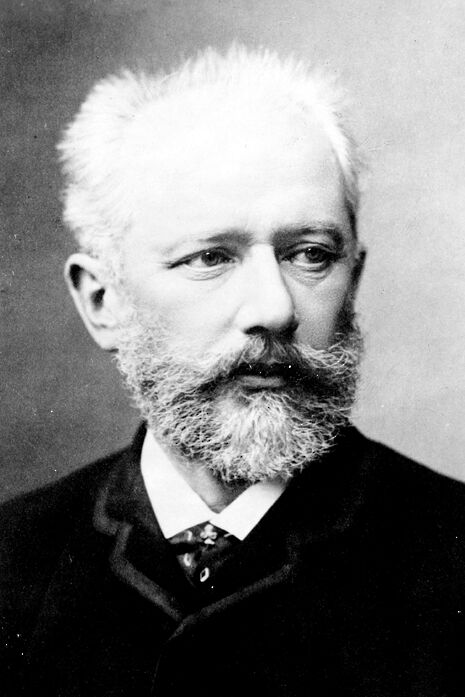Concert review: CUMSCO perform Beethoven, Tchaikovsky and Schubert Symphony
Thea Sands was unimpressed by a performance lacking in drama and discordance

The West Road Concert Hall was nearly full for the final concert before the ‘rebranding’ of the Cambridge University Musical Society Concert Orchestra (formerly CUMS II). Scanning faces in the audience, I wondered why each apparent advocate of classical music had turned up? To enjoy the music? To support friends and family? To relax? To sleep?
I want to know why people are perpetually interested in this style of music. Is classical music becoming the new popular music? Were the groups of students taking selfies and pictures of the orchestra unknowingly reviving the adoration of ‘the virtuoso’ that Mozart and Liszt kicked off in the 18th and 19th centuries? To me, it felt more like the glorification of the concert hall itself as an icon of prestige, opulence and prosperity, rather than the adulation of the actual performers. Listening to the muttering and murmuring of the audience before the performance started was almost music in itself. This soundscape was arguably more interesting than the one to come.
I did not find the repertoire for this concert stimulating. As a great lover of all things twentieth-century, I found it difficult to listen to two hours of ‘nice’ melodious music, with only the thrashings of the timpani as remedy to my ear’s yearning for something discordant. I always need a glimmer of experimentalism and radicalism in music, and I could find this only partially in Beethoven’s Coriolan Overture (1807). Tchaikovsky’s Variations on a Rococo Theme (1877) looked backwards to Mozart, and Schubert’s Symphony no.6 (1818) seemed to be a replica of fragments of Beethoven’s Eroica and, according to the programme, Beethoven’s 7th.
“As a great lover of all things twentieth-century, I found it difficult to listen to two hours of ‘nice’ melodious music”
Coriolan Overture opened the programme, and this was where the concert reached its pinnacle. Toby Hession, the chief conductor of CUMSCO, began the piece triumphantly, which grabbed the audience’s attention with startling pauses, during which he managed to slice various introductory chords through the orchestra.
Yet in places the ensemble didn’t seem to be in such command of the music. Yes, these aren’t the greatest performers from the student body, but there were a few tuning issues, mostly within the violins. They slowly slipped further out of tune when faced with particularly lyrical lines, causing one of the main themes to become slightly warped. However, this became an advantage when the pauses took centre stage again. As the strings were signalled to pause, they all threw back great upbows, which, accompanied by an array of tonally conspicuous notes, created the fantastic sound of a knife ripping out of a sheath.
The strong woodwind section made up for problems with the strings, with a particularly excellent performance given by Marie-Louise James on principal oboe. Elspeth Collard also managed to reconcile some of the weak string parts, offering strong, precise blows to the timpani. There was a sense that the orchestra was on edge, but Hession’s persuasive conducting managed to ground the players.
Winner of the 2016 CUMS Concerto competition, William Clark-Maxwell’s solo cello performance in Tchaikovsky’s Variations on a Rococo Theme provided an antidote to the weakness in the violin section. The purity of the horns and the woody-tone of the cello also provided some folk-like inflections. Clark-Maxwell displayed versatility of character on his instrument, bringing energy and harmonic variety with explosive sliding sections and chilling high notes, always teetering on the edge of the cliff of consonance. This was a good bridge between the overture and the symphony, offering a mini-concerto of sorts.
My personal distaste for Schubert's writing seemed to inform the way I listened to the music, making it difficult to give a fully objective review. It seemed very similar to the previous two pieces, so I struggled to really immerse myself in it. It was an amalgam of the tame tunes of Haydn, Mozart and Beethoven. I suppose my response reflects my current feelings towards the classical music world and indeed the classical canon in general.
Change is needed. But I do not want my personal feelings to detract from what was a solid effort to convey the drama that would have emanated from each piece at its premiere. The classical music sphere is blocked by rigid convention of dress and clapping. I feel that with the sound of technological and industrial innovation to contend with, such music and staging has lost its appeal to modern ears
 Interviews / ‘People just walk away’: the sense of exclusion felt by foundation year students19 April 2024
Interviews / ‘People just walk away’: the sense of exclusion felt by foundation year students19 April 2024 News / Controversy on the Cam: John’s spend almost 90 times more on rowing than other colleges19 April 2024
News / Controversy on the Cam: John’s spend almost 90 times more on rowing than other colleges19 April 2024 Theatre / The closest Cambridge comes to a Drama degree 19 April 2024
Theatre / The closest Cambridge comes to a Drama degree 19 April 2024 News / Corpus student left with dirty water for over six months21 April 2024
News / Corpus student left with dirty water for over six months21 April 2024 News / Emmanuel College cuts ties with ‘race-realist’ fellow19 April 2024
News / Emmanuel College cuts ties with ‘race-realist’ fellow19 April 2024





